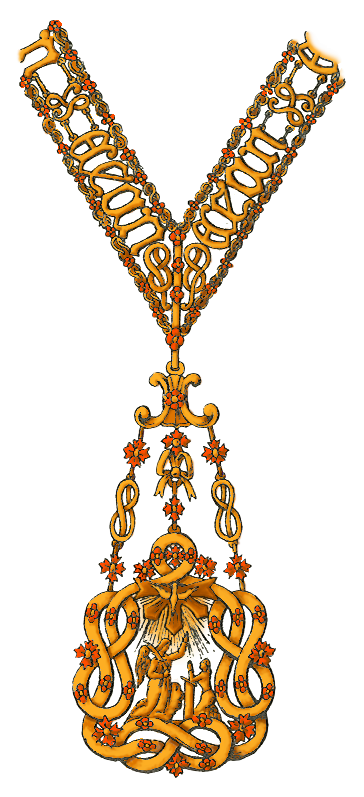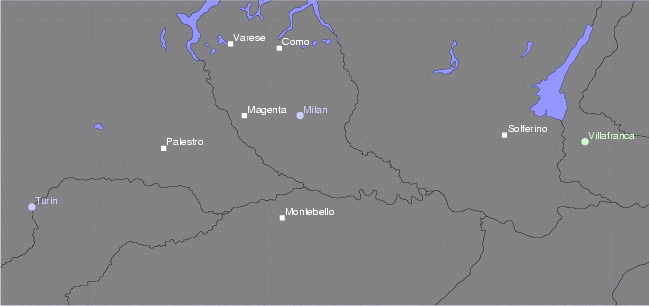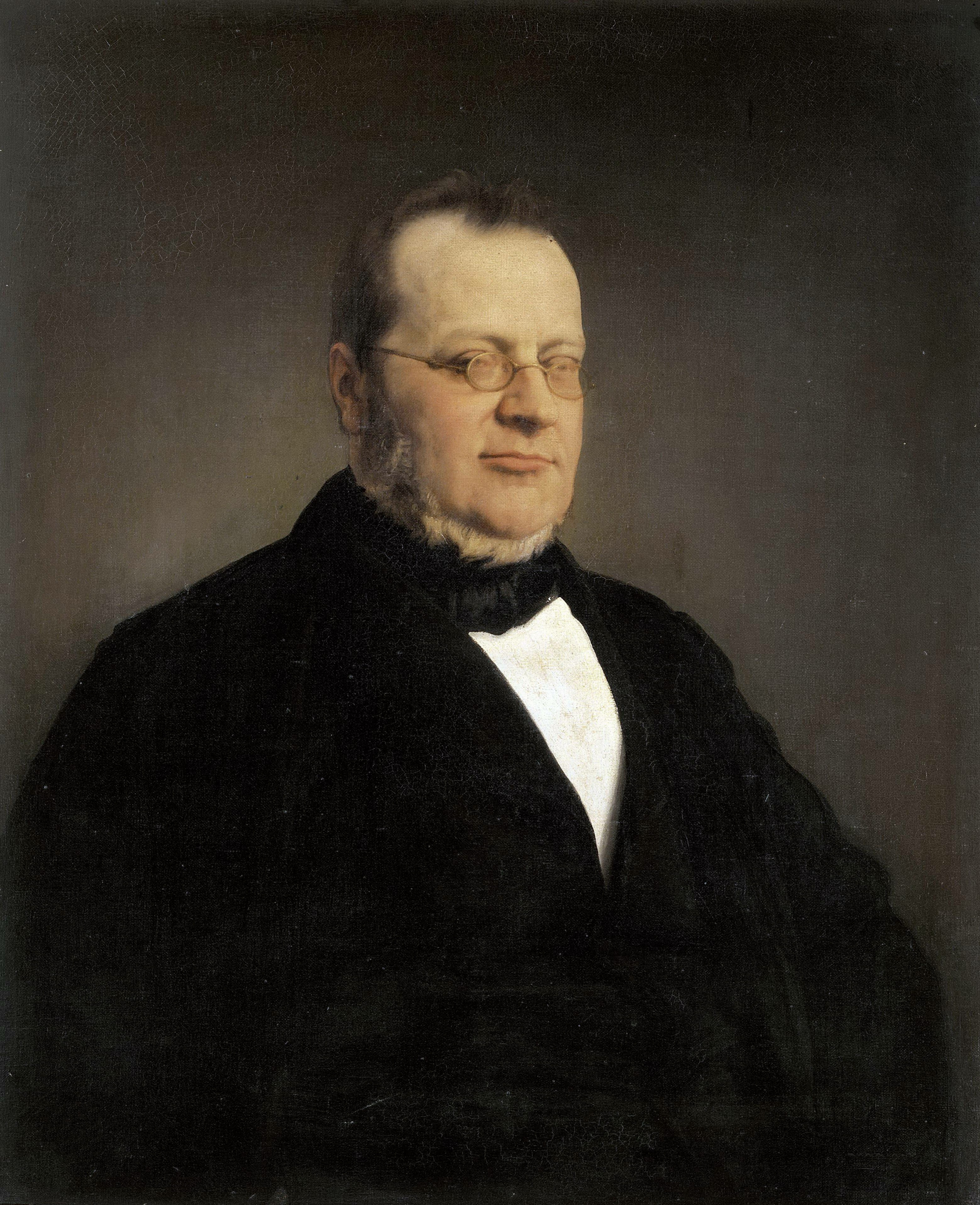|
Emilio Visconti-Venosta
Emilio, marquis Visconti-Venosta (22 January 182924 November 1914) was an Italian statesman. He is one of the longest-serving Ministers of Foreign Affairs in the history of Italy. Biography Visconti-Venosta was born in Milan, in the Kingdom of Lombardy–Venetia. He studied jurisprudence at the University of Pavia. A disciple of Mazzini, he took part in all the anti- Austrian conspiracies until the ineffectual rising at Milan on 6 February 1853, of which he had foretold the failure, induced him to renounce his Mazzinian allegiance. Continuing, nevertheless, his anti-Austrian propaganda, he rendered good service to the national cause, but being molested by the Austrian police, was obliged in 1859 to escape to Turin, and during the war with Austria of that year was appointed by Cavour royal commissioner with the Garibaldian forces. Elected deputy in 1860, he accompanied Luigi Carlo Farini on diplomatic missions to Modena and Naples, and was subsequently despatched to London ... [...More Info...] [...Related Items...] OR: [Wikipedia] [Google] [Baidu] |
Supreme Order Of The Most Holy Annunciation
The Supreme Order of the Most Holy Annunciation () is a Catholic order of chivalry, originating in County of Savoy, Savoy. It eventually was the pinnacle of the Orders, decorations, and medals of Italy#The Kingdom of Italy, honours system in the Kingdom of Italy, which ceased to be a Order (honour), national order when the kingdom 1946 Italian institutional referendum, became a republic in 1946. Today, the order continues as a dynastic order of knighthood, dynastic order under the jurisdiction of the Head of the House of Savoy. History and statutes The Supreme Order of the Most Holy Annunciation originated in 1362, when Amadeus VI of Savoy, Amadeus VI, Count of Savoy (1343–1383) instituted the order's earliest designation, under the title of Order of the Collar.''Syr Gawayn and the Grene Knyzt-(Concluded)'', J. R. Hulbert, Modern Philology, Vol. 13, No. 12 (Apr., 1916), 140. The order was dedicated to the Blessed Virgin Mary, who is celebrated as "Our Lady of the Annunciation." ... [...More Info...] [...Related Items...] OR: [Wikipedia] [Google] [Baidu] |
Milan
Milan ( , , ; ) is a city in northern Italy, regional capital of Lombardy, the largest city in Italy by urban area and the List of cities in Italy, second-most-populous city proper in Italy after Rome. The city proper has a population of nearly 1.4 million, while its Metropolitan City of Milan, metropolitan city has 3.2 million residents. Within Europe, Milan is the fourth-most-populous List of urban areas in the European Union, urban area of the EU with 6.17 million inhabitants. According to national sources, the population within the wider Milan metropolitan area (also known as Greater Milan) is estimated between 7.5 million and 8.2 million, making it by far the List of metropolitan areas of Italy, largest metropolitan area in Italy and List of metropolitan areas in Europe, one of the largest in the EU.* * * * Milan is the economic capital of Italy, one of the economic capitals of Europe and a global centre for business, fashion and finance. Milan is reco ... [...More Info...] [...Related Items...] OR: [Wikipedia] [Google] [Baidu] |
Luigi Carlo Farini
Luigi Carlo Farini (22 October 1812 – 1 August 1866) was an Italian physician, statesman and historian. Biography Farini was born at Russi, in what is now the province of Ravenna. After completing a university course at Bologna, which he interrupted to take part in the revolution of 1831, he practised as a physician at Russi and at Ravenna. He acquired a considerable reputation, but in 1843 his political opinions brought him under the suspicion of the police and caused his expulsion from the Papal States. He resided successively in Florence and Paris, and travelled about Europe as private physician to Prince Jérôme Bonaparte, but when Pius IX was elected to the Holy See and began his reign with apparently Liberal and nationalist tendencies, Farini returned to Italy and was appointed secretary-general to G Recchi, the minister of the interior (March 1848). But he held office for little more than a month, since like all the other Italian Liberals he disapproved of ... [...More Info...] [...Related Items...] OR: [Wikipedia] [Google] [Baidu] |
Giuseppe Garibaldi
Giuseppe Maria Garibaldi ( , ;In his native Ligurian language, he is known as (). In his particular Niçard dialect of Ligurian, he was known as () or (). 4 July 1807 – 2 June 1882) was an Italian general, revolutionary and republican. He contributed to Italian unification (Risorgimento) and the creation of the Kingdom of Italy. He is considered to be one of Italy's " fathers of the fatherland", along with Camillo Benso di Cavour, King Victor Emmanuel II and Giuseppe Mazzini. Garibaldi is also known as the "Hero of the Two Worlds" because of his military enterprises in South America and Europe. Garibaldi was a follower of the Italian nationalist Mazzini and embraced the republican nationalism of the Young Italy movement. He became a supporter of Italian unification under a democratic republican government. However, breaking with Mazzini, he pragmatically allied himself with the monarchist Cavour and Kingdom of Sardinia in the struggle for independence, subordinati ... [...More Info...] [...Related Items...] OR: [Wikipedia] [Google] [Baidu] |
Camillo Benso Conte Di Cavour
Camillo Paolo Filippo Giulio Benso, Count of Cavour, Isolabella and Leri (; 10 August 1810 – 6 June 1861), generally known as the Count of Cavour ( ; ) or simply Cavour, was an Italian politician, statesman, businessman, economist, and noble, and a leading figure in the movement towards Italian unification. He was one of the leaders of the Historical Right and Prime Minister of the Kingdom of Sardinia from 1852, a position he maintained (except for a six-month resignation) until his death, throughout the Second Italian War of Independence and Giuseppe Garibaldi's campaigns to unite Italy. After the declaration of a united Kingdom of Italy, Cavour took office as the first Prime Minister of Italy; he died after only three months in office and did not live to see the Roman Question solved through the complete unification of the country after the Capture of Rome in 1870. Cavour put forth several economic reforms in his native region of Piedmont, at that time part of the Kingdo ... [...More Info...] [...Related Items...] OR: [Wikipedia] [Google] [Baidu] |
Second Italian War Of Independence
The Second Italian War of Independence, also called the Sardinian War, the Austro-Sardinian War, the Franco-Austrian War, or the Italian War of 1859 (Italian: ''Seconda guerra d'indipendenza italiana''; German: ''Sardinischer Krieg''; French: ''Campagne d'Italie''), was fought by the Second French Empire and the Kingdom of Sardinia (1720–1861), Kingdom of Sardinia against the Austrian Empire in 1859 and played a crucial part in the process of Italian Unification. A year prior to the war, in the Plombières Agreement, France agreed to support Sardinia's efforts to expel Austria from Italy in return for territorial compensation in the form of the Duchy of Savoy and the County of Nice. The two states signed a military alliance in January 1859. Sardinia mobilised its army on 9 March 1859, and Austria mobilized on 9 April. On 23 April, Austria delivered an ultimatum to Sardinia demanding its demobilization. Upon Sardinia's refusal, the war began on 26 April. Austria invaded Sardin ... [...More Info...] [...Related Items...] OR: [Wikipedia] [Google] [Baidu] |
Turin
Turin ( , ; ; , then ) is a city and an important business and cultural centre in northern Italy. It is the capital city of Piedmont and of the Metropolitan City of Turin, and was the first Italian capital from 1861 to 1865. The city is mainly on the western bank of the Po (river), River Po, below its Susa Valley, and is surrounded by the western Alpine arch and Superga hill. The population of the city proper is 856,745 as of 2025, while the population of the urban area is estimated by Eurostat to be 1.7 million inhabitants. The Turin metropolitan area is estimated by the OECD to have a population of 2.2 million. The city was historically a major European political centre. From 1563, it was the capital of the Duchy of Savoy, then of the Kingdom of Sardinia (1720–1861), Kingdom of Sardinia ruled by the House of Savoy, and the first capital of the Kingdom of Italy from 1861 to 1865. Turin is sometimes called "the cradle of Italian liberty" for having been the politi ... [...More Info...] [...Related Items...] OR: [Wikipedia] [Google] [Baidu] |
Austrian Empire
The Austrian Empire, officially known as the Empire of Austria, was a Multinational state, multinational European Great Powers, great power from 1804 to 1867, created by proclamation out of the Habsburg monarchy, realms of the Habsburgs. During its existence, it was the third most populous monarchy in Europe after the Russian Empire and the United Kingdom of Great Britain and Ireland, United Kingdom, while geographically, it was the third-largest empire in Europe after the Russian Empire and the First French Empire. The empire was proclaimed by Francis II, Holy Roman Emperor, Francis II in 1804 in response to Napoleon's declaration of the First French Empire, unifying all Habsburg monarchy, Habsburg possessions under one central government. It remained part of the Holy Roman Empire until the latter's dissolution in 1806. It continued fighting against Napoleon throughout the Napoleonic Wars, except for a period between 1809 and 1813, when Austria was first allied with Napoleon ... [...More Info...] [...Related Items...] OR: [Wikipedia] [Google] [Baidu] |
Giuseppe Mazzini
Giuseppe Mazzini (, ; ; 22 June 1805 – 10 March 1872) was an Italian politician, journalist, and activist for the unification of Italy (Risorgimento) and spearhead of the Italian revolutionary movement. His efforts helped bring about the independent and unified Italy in place of the several separate states, many dominated by foreign powers, that existed until the 19th century. An Italian nationalist in the historical radical tradition and a proponent of a republicanism of social-democratic inspiration, Mazzini helped define the modern European movement for popular democracy in a republican state. Mazzini's thoughts had a very considerable influence on the Italian and European republican movements, in the Constitution of Italy, about Europeanism and more nuanced on many politicians of a later period, among them American president Woodrow Wilson, British prime minister David Lloyd George, Mahatma Gandhi, Indian prime minister Jawaharlal Nehru, and Indian independence activis ... [...More Info...] [...Related Items...] OR: [Wikipedia] [Google] [Baidu] |
University Of Pavia
The University of Pavia (, UNIPV or ''Università di Pavia''; ) is a university located in Pavia, Lombardy, Italy. There was evidence of teaching as early as 1361, making it one of the List of oldest universities in continuous operation, oldest universities in the world. It was the sole university in Milan and the greater Lombardy region until the end of the 19th century. In 2022, the university was recognized by the Times Higher Education World University Rankings, Times Higher Education among the top 10 in Italy and among the 300 best in the world. Currently, it has 18 departments and 9 faculties. It does not have a main campus; its buildings and facilities are scattered around the city, which is in turn called "a city campus". The university caters to more than 20,000 students who come from Italy and all over the world. The university offers more than 80 undergraduate programs; over 40 master programs, and roughly 20 doctoral programs (including 8 in English). About 1,500 studen ... [...More Info...] [...Related Items...] OR: [Wikipedia] [Google] [Baidu] |
Politician
A politician is a person who participates in Public policy, policy-making processes, usually holding an elective position in government. Politicians represent the people, make decisions, and influence the formulation of public policy. The roles or duties that politicians must perform vary depending on the level of government they serve, whether Local government, local, national, or international. The ideological orientation that politicians adopt often stems from their previous experience, education, beliefs, the political parties they belong to, or public opinion. Politicians sometimes face many challenges and mistakes that may affect their credibility and ability to persuade. These mistakes include political corruption resulting from their misuse and exploitation of power to achieve their interests, which requires them to prioritize the public interest and develop long-term strategies. Challenges include how to keep up with the development of social media and confronting biase ... [...More Info...] [...Related Items...] OR: [Wikipedia] [Google] [Baidu] |
Historical Right
The Right group (), later called Historical Right () by historians to distinguish it from the right-wing groups of the 20th century, was an Italian conservative parliamentary group during the second half of the 19th century. After 1876, the Historical Right constituted the Constitutional opposition toward the left governments. It originated in the convergence of the most liberal faction of the moderate right and the moderate wing of the democratic left. The party included men from heterogeneous cultural, class, and ideological backgrounds, ranging from British-American individualist liberalism to Neo-Hegelian liberalism as well as liberal-conservatives, from strict secularists to more religiously-oriented reformists. Few prime ministers after 1852 were party men; instead they accepted support where they could find it, and even the governments of the Historical Right during the 1860s included leftists in some capacity. The Right represented the interests of the Northern bourgeoisi ... [...More Info...] [...Related Items...] OR: [Wikipedia] [Google] [Baidu] |







